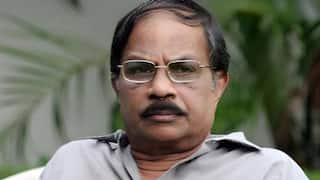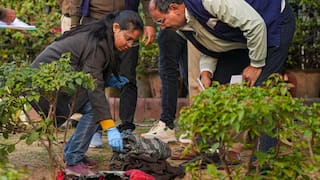Suu Kyi's Political Journey: Forming 1st Civilian Govt In Myanmar To Imprisonment By Military
Suu Kyi's political career, which began in 1988, has not been a bed of roses, with her handling of the Rohingya crisis drawing criticism across the world.

New Delhi: In an interesting twist of fate, Myanmar's ousted leader Aung San Suu Kyi was sentenced to four years in prison after being put on trial by the same generals whom she had defended against genocide charges over a 2017 military offensive against Rohingya Muslims.
The 76-year-old Nobel laureate was convicted for inciting dissent and breaking Covid-19 rules under a natural disasters law, AP reported.
Suu Kyi has been in detention ever since a military coup in February prevented her National League for Democracy party from starting a second five-year term in office.
However, Suu Kyi's political career, which began in 1988, has not been a bed of roses, with her handling of the Rohingya crisis drawing criticism across the world.
Suu Kyi spent a major chunk of her teenage life in the United States and the UK. In 1972, she married Michael Aris, a British scholar.
Here is a timeline of Aung San Suu Kyi's political career:
* April 1988: Suu Kyi returned to Myanmar in April 1988 to take care of her ailing mother amid pro-democracy protests against the 26-year military rule of General Ne Win. Months later, in her first public speech, she issued a call for democracy and formed a party named National League for Democracy.
* July 20, 1989: Suu Kyi is placed under house arrest. Suu Kyi spent nearly 15 years in detention at the hands of the military between 1989 and 2010. A year later, Suu Kyi's party won a landslide election victory. However, the military government refused to hand over power.
* October 14, 1991: Suu Kyi is awarded the Nobel Peace Prize for her struggle for democracy.
* May 30, 2003: In what was seen as an assassination attempt, Suu Kyi's convoy was ambushed and her supporters were killed in northern Myanmar.
* April 1, 2012: Two years after being released from house arrest, Suu Kyi wins a seat in Parliament after her party participated in bye-elections.
* November 2015: On November 8, 2015, Suu Kyi's party won the general elections. However, she could not become president due to rules not allowing those with foreign national children from holding the post. In 2016, the position of state counsellor was created for her to lead the government.
* August 2017: Rohingya militants attacked security forces in Rakhine, killing dozens. The Myanmar military launched a brutal offensive, driving more than 7,30,000 Rohingyas out of the country. Activists "said the move constituted "ethnic cleansing" and "possibly genocide".
Interestingly, Suu Kyi appeared at the UN International Court of Justice (ICJ) in 2019 to defend her country against accusations of genocide amid condemnation from world leaders.
* November 2020: Suu Kyi’s party was re-elected for a second consecutive term with an even greater majority.
* February 1, 2021: In a midnight coup, Suu Kyi and her top party leaders were detained and the army seized power because of what it called widespread fraud in the November election.
Trending News
Top Headlines





































